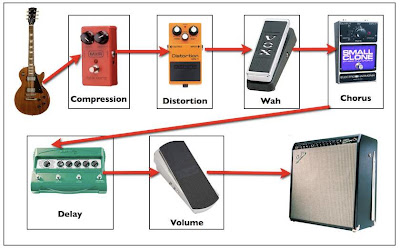
After I wrote a post a couple of weeks ago entitled "
Here's What's Wrong With Your Music," I received a number of emails from people who apparently got the mistaken impression that I was looking for artists or songs. That's not the case at all. That's not the business I'm in. But I do like to help people with their production, arrangement, engineering, etc. if I can.
Look, here's the deal.
I promise I will do my best to help you if you have a specific question!
When you make a question that's too general you put me in an impossible situation in that you probably don't really want to hear any criticism in the first place, you just hope that I'll fall madly in love with your music and open every door in Hollywood for you. I wish I were that powerful or had those kinds of contacts.
If I tell you "This is no different than something I've heard a hundred times before," or "I have no idea. I don't know your market," you're going to say, "That guy doesn't know what he's talking about," or "He doesn't want to help me." Let's face it, you really weren't looking for a critique in the first place. You were looking for help placing your music, which I can't provide. That's why specific questions are the only way you'll get a specific answer from me.
So here's a list of what not to ask not only of me, but most other music professionals as well:
Take a listen to my song. Here's where you can download it. If you have a specific question, I'll be happy to listen to your song, but
it must be a stream and not a download. There's a potential legal issue if I accept a download, sort of like record labels not accepting any unsolicited material. Put it on
YouTube with a private link or on
Soundcloud, ask a specific question, and I'll have a listen.
What do you think of my song? Go ask your fans. They're much more important and relevant to your success than I am. You do have fans, don't you?
My songs are on iTunes or
We just finished our CD...... Sorry, it's too late to ask any questions about it. You're product's already complete. If you want advice on distribution or marketing, go to the
Music 3.0 blog, but check the archives first, and once again, be specific with any questions.
Will you listen to my CD? See above.
Give me some feedback. On what? The mix? The songs? The arrangement? The production? The sound? A question like this makes me think that you're only looking for a pat on the back.
Which song is the most commercial? Once again. Ask your fans. They're the ones that count. And by the way, so many times the song that you think is least commercial is the one that everyone likes anyway.
How can I make my songs better? Do you really want to hear me tell you to write better, play better, and use better sounding instruments? That's a good place to start.
Can you introduce me to.....? Nope, I probably don't know them, and if I did, it's unlikely that I'd introduce you unless I knew you a lot better than just from an email.
Can you introduce me to publishers, record labels, etc? Nope. You probably know more of them than I do at the moment. Here's a tip. To meet publishers, join the
AIMP for 60 bucks a year. Want record label contacts? Try the
A&R Registry.
I have some songs that I'd love to get to ..... Sorry, I'm not a songplugger and I barely have enough time for my own things as it is.
Will you write with me? I don't write songs anymore, and if I did, I'd do it alone.
Can I write with you? See above.
Can I watch you work in the studio? Highly unlikely. If I'm working in the studio, I'm with a client who I can guarantee doesn't want any distractions from people
that they don't know.
Can I visite you in the studio when you're working? See above.
Will you produce, record, mix my band on spec? Nope. My time is valuable and I get paid well for it.
Will you partner with me on a project? Only if there's some money involved, and even then, I have to be absolutely in love with the project first. I no longer work on anything that doesn't knock my socks off.
Wait, don't listen to version 7 of the mix I just sent. Mix 9 is so much better. You've wasted my time. Next.
A full quality recording is attached. Next. I already told you I will only listen to a stream because of any potential legal issues that might come with downloads.
What should I do to get my music noticed? Sorry but there's not enough time to write you an email that long. I already wrote a book that tells you all that, or you can read my
Music 3.0 blog every day for free.
Can you send me one of your books for free? Nope. I don't get that many complimentary ones myself, and the rest I have to pay for.
I'm from (pick a country) and I want to translate your books. I have 3 book publishers that control my copyrights so you'll have to ask them. I have no say in the matter. Be aware that they'll probably want some sort of a license fee.
For students:
Can you please answer these 10 questions to help me with my desertion? I'm sure you want answers that are sufficiently helpful and thoughtful, but I'm slow at writing and it takes me a looong time. I'm really happy to talk to you by
Skype and answer every question and more. Make sure to record it because you'll get more info than you ever expected. If you're happy with a one sentence answer to your 10 questions, no problem, but neither of us will probably like that.
Wow, this sounds really harsh and I didn't mean it to sound that way. Once again, I'm really happy to help if you have a specific question. Here are some good examples:
How do you do (name the technique)? Finally, a specific question. Ask away. I'm pleased to help if I can.
Do you think the bottom of this song is too big?
The song isn't working. Can you tell me why?
How can I get the vocalist to sing in tune?
How do I get a better guitar (bass, sax, piano, etc.) tone?
What can I do to make the reverb work better with the track?
What can I do to make the drums punchier?
See what I mean? With a specific question I can get right to the core of the problem and help you. So ask away, but once more -
no downloads, only streams!
----------------------------------




